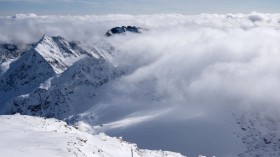Global warming could impact the El Niño Southern Oscillation (ENSO), researchers have found, resulting in changes in the El Niño and La Niña weather cycles known to cause drought and flooding in Australia and other Pacific-rim countries.
Published in Nature Geoscience, the study uses coral samples to track the last 4,300 years of the ENSO cycle. The results suggest that El Niño events are easily influenced by external changes.
"Our research has showed that while the development of La Niña and El Niño events is chaotic and hard to predict, the strength of these events can change over long time spans due to changes in the global climate," Steven Phipps, one of the paper's authors, said in a statement. "For instance, we found that the ENSO cycle was much weaker 4,300 years ago than it is today. This weaker cycle persisted for almost two centuries."
Based on their findings, the researchers determined that among those natural influences that affect the strength of El Niño events are variations in the Earth's orbit around the Sun.
"We found there was a small strengthening of the regular seasonal trade winds in the Eastern Pacific in response to natural warming cycles in the Earth's orbit around the sunk," said lead author Helen McGregor from the University of Wollongong. "Remarkably this acted in a big way to stop El Niño events from forming and growing."
According to McGregor, "This shows us that external factors can influence the ENSO process and that it may have a sustained response to future greenhouse gas changes."
Though, she adds, 20th century observations are currently too short to prove whether or not similar changes are underway now.
Going forward, the researchers say the observations can be used in climate models to test whether past changes in ENSO events can be reproduced.
"Currently, climate models do not agree on how El Niño may change under future global warming scenarios," Phipps said. "With these new observations we can determine which models reproduce the most accurate response to changes in the global climate. This will help us to more accurately forecast the response of ENSO under future global warming scenarios."
© 2024 NatureWorldNews.com All rights reserved. Do not reproduce without permission.




